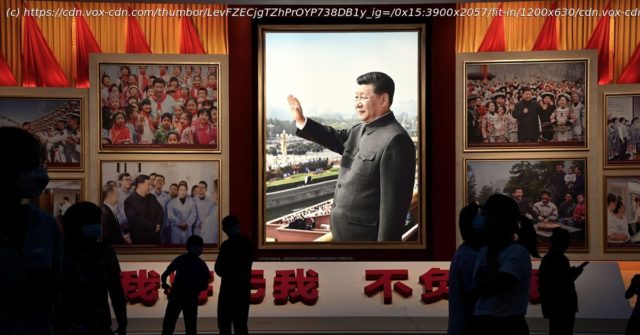6 questions about China’s week-long Party Congress and Xi’s unprecedented third term.
The biggest political event of the year is happening this weekend — and it’s not an election.
Beginning on October 16, some 2,300 delegates from around China will assemble in Tiananmen Square’s Great Hall of the People for the Chinese Communist Party’s week-long Party Congress. After much behind-the-scenes deliberations among party elites, the choices for China’s top leadership for the next five years will be presented to the country. The party will also review last term’s progress and set out its domestic and foreign policy goals for the next one. Decisions on both policy and personnel will be finalized officially in the spring.
The stakes of what happens during this Congress for China and the rest of the world will probably be the most momentous in decades. President Xi Jinping, who has more personal power over China than any leader since Mao Zedong, is expected to be confirmed to serve an unprecedented third term.
“The question is: How elevated will Xi Jinping be?” said Michael Swaine, the director of the East Asia program and an expert on Chinese defense and foreign policy at the Quincy Institute for Responsible Statecraft. “There’s going to be a lot of continuity with a probable strengthening of his position.”
China has changed dramatically under Xi’s now decade-long rule. Xi will likely laud his administration’s success on ending extreme poverty, tackling climate change, curbing corruption, and, at least until recently, growing the economy. Despite its initial missteps in containing the virus, China’s zero-Covid guidelines succeeded at limiting mortality from Covid-19 compared to many other countries, though that success has come with serious economic and political side effects. China also transformed its foreign policy and became the world’s largest creditor with the Belt and Road Initiative, a massive global infrastructure and development program.
During Xi’s time in power, however, China has also become more nationalist, authoritarian, and repressive. The government has engaged in what many critics, including the United States, have called genocide toward the Uyghurs and other Muslim ethnic minority groups in Western China and crushed any semblance of autonomy in Hong Kong. Abroad, China has become more assertive of territorial claims in the East and South China Seas, engaged in border skirmishes with India, and most notably, ratcheted up military action and threatening to use force to bring Taiwan under its control.
Given that all of the major policy and personnel decisions have already been made behind the scenes, the best way to think about the Party Congress is as a weather forecast for China and the world. Internally, China is dealing with significant economic issues, partly as a consequence of its strict zero-Covid policies and a real estate crisis. It’s also facing more climate catastrophes and a looming demographic collapse as its population appears to have begun to decline. Externally, China finds itself with frostier relations with the US and European Union — its largest trading partners — while the Global North’s public opinion of China has soured because of its pandemic response.
This year’s Party Congress will begin to make clear whether and how Xi and the Chinese government will reframe their approach to a world that has hugely changed since the last Party Congress five years ago. Xi “still recognizes that China must remain an international player in many, many different ways in order to succeed,” Swaine said. “He cannot isolate China and turn it into a sort of self-contained entity.”
To learn more about the future of China, I spoke with Swaine about what to expect and how Xi views the current geopolitical moment. Our conversation has been edited for length and clarity.






